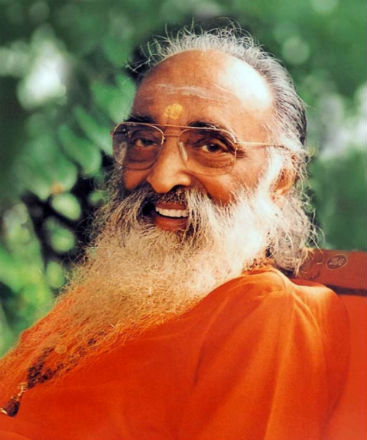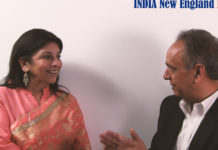By Upendra Mishra
BOSTON–Close friends of mine who have known me well enough or have camped with me in the mountains or the nature wild all these years know that I have always enjoyed every weather—no matter whether it rains or shines, freezing cold or scorching heat or spring or autumn. I am totally in for all seasons.
While reading the commentary of Swami Chinmayananda on Gita once, I was pleasantly surprised when he talked about eight seasons—six seasons outside and two inside us.

“Even the spring-time flowers will shed tears for us, if, at that time, we are in tragic bereavement, while even the naked trees of the autumn season will be quivering with joy for us, if, in that season, we have the joy of success, full and complete—thereby the two internal seasons. All of them are experienced by us only when we are under the grace of our own consciousness within.”
The grace of our own consciousness is important. It basically means that we have to be self-aware and remove the piling clutter from our head—not once, twice or thrice but all the time. In today’s world of information overload, it becomes more essential.
Why?
Because we lose grace of our own consciousness and don’t experience our life we were born to enjoy, feel and share with our loved ones. Our experiencing this wonderful life becomes superficial. We express more emotions, for example, when we see a movie, read a book or see a beautiful painting. There is nothing wrong with that. That too is an experience, and rightly so.
However, there are so many causes of distractions and sources of interruptions that we easily get distracted from our own experience and original purpose of our life. Social media, television, Netflix, 24-7 news, radio and gossips and tatters on Facebook and other information channels overtake us. If we are not careful, we start living the outside world inside. What a waste of time and our own life?
Imagine walking outside our home and looking at the real sky, live trees, flowing rivers, blooming flowers, varied plants, and the simple Mother Nature. When was the last time we looked at the stars or moon or sat under a tree to enjoy its shade? When was the last time we experienced our own love of today, yesterday or of many decades ago?
Once we create a thought process that emanates from within, and build a life-style that does not seek validation from others and a life whose purpose is to experience the present moment as it is, we finally start to get some grip on our wandering mind. It starts slowly and with a lot of practice and patience, but finally that realization moment comes suddenly and we say to ourselves—wow, I can finally control my thought. We have been falsely programmed that we cannot control our thoughts and mind. But we know how important it is to control our mind and thus one’s thoughts.
The entire Indian philosophy and mythology is geared towards yoga and mediation in order to tame our mind and control our thoughts. Buddha was perhaps the first historic figure who understood the importance of mind and that is why followers of his teaching are still growing worldwide after approximately 2,500 years.
“We are shaped by our thoughts; we become what we think. When the mind is pure, joy follows like a shadow that never leaves,” Budha said. “There is nothing so disobedient as an undisciplined mind, and there is nothing so obedient as a disciplined mind.”
Why do we need to work constantly on our mind and the quality of our thoughts?
After we are born, we get a name and numerous titles: brother, sister, son, daughter, husband, wife and the list goes on. Later, we become student, teacher, professional, doctor, engineer, and again the list goes on. We also attach ourselves to wealthy, rich, poor, brilliant, smart and so on. Sometimes, we truly are all those and sometimes we pretend to be, and most of the time these are just thoughts that either we, our family, friends, community or society have created and instilled within us.
In this role-playing, being or pretending to be, we forget who we truly are.
Who am I? What is my core? What is my true nature?
Once, however. we know who we are, what we feel, what we experience, and we accept them, our life takes a new turn. It leads to a wonderful journey. We stop pretending. We stop fixing the world and people and the evils of the society. We start fixing ourselves and start living a true and honest life. This what I call living under the grace of our own consciousness within as Swami Chinmayananda had said.
“You have attached all kinds of things to it—body, feelings, thoughts, ideas, possessions etc. All these self-identifications are misleading. Because of them you take yourself to be what you are not,” says Sri Nisargadatta Maharaj. “Harmony between the inner and the outer is happiness. On the other hand, self-identification with the outer causes is suffering…Seek within. Your own self is your best friend.”
(Mr. Mishra is managing partner of the Waltham, MA-based integrated inbound marketing and PR firm The Mishra Group. He writes about his three passions: marketing, scriptures and gardening.)














